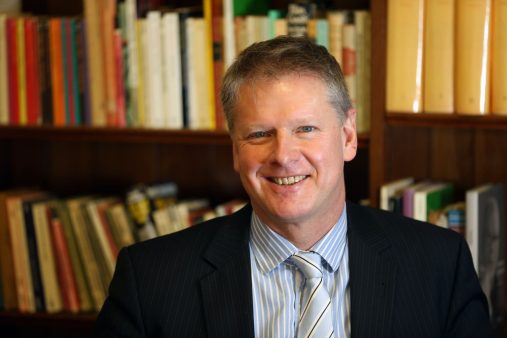Equality Challenge Unit (ECU) biennial conference
18 November 2014
I’m writing this on my way back from the Equality Challenge Unit (ECU) biennial conference, which this year took place in Liverpool (my home town as it happens). I’ve been a Board member of the ECU since 2008 and have managed to attend every conference so far. On every occasion I’ve learned something new and there are always inspiring contributions. I chaired a session in which Professor Julius Weinberg, Vice-Chancellor of Kingston University, and Professor Maggie Kinloch, Vice Principal of the Royal Scottish Conservatoire, talked about their experience of leading change to improve equality and encouraging greater diversity. Both of them were well received and provoked lots of questions; how do you handle the conflicts that often arise as diversity increases for example? Or how to counter the accusation that measures to improve equality means that the quality of people goes down because you’re no longer selecting on the basis of excellence. I was asked to join in answering these more general questions although I hadn’t given a presentation; I took advantage of the opportunity because I have strong views on these issues. My answer to that last question about selection criteria was that it’s obviously not the case. I don’t for a moment believe that the reason only 17% of vice-chancellors are women is because there are insufficient female candidates with the necessary qualities. Recent research shows that female candidates for vice-chancellorships do make the long list – so they are out there – but tend not to be shortlisted and are even more rarely appointed, even if they have had similar development opportunities to men. The argument that women haven’t reached the right standard or don’t have the right leadership qualities doesn’t stand up to a moment’s scrutiny. We do have a problem with equality and diversity in higher education so we might as well admit it. The gender pay gap stands at more than 12% for academics and more than 11% for colleagues not on academic contracts. That’s across the sector, not just Cardiff or Wales. This is why the Equality Challenge Unit exists. The heartening news is that the conference was incredibly well attended; in fact not everybody who wanted to come could be accommodated. The enthusiasm, commitment and level of expertise the participants displayed was extremely high. There were five or six vice-chancellors there; I do wish more senior university leaders would attend so they could see the passion for change that’s in their own institutions. I hope we will be able to achieve that for the next conference in two years’ time.
- June 2024
- May 2024
- April 2024
- February 2024
- January 2024
- December 2023
- November 2023
- October 2023
- September 2023
- August 2023
- July 2023
- June 2023
- May 2023
- April 2023
- March 2023
- February 2023
- January 2023
- December 2022
- November 2022
- October 2022
- September 2022
- August 2022
- July 2022
- June 2022
- May 2022
- April 2022
- March 2022
- February 2022
- January 2022
- December 2021
- November 2021
- October 2021
- September 2021
- August 2021
- July 2021
- June 2021
- May 2021
- April 2021
- March 2021
- February 2021
- January 2021
- December 2020
- November 2020
- October 2020
- September 2020
- August 2020
- July 2020
- June 2020
- May 2020
- April 2020
- March 2020
- February 2020
- January 2020
- December 2019
- November 2019
- October 2019
- September 2019
- August 2019
- July 2019
- May 2019
- April 2019
- March 2019
- February 2019
- January 2019
- December 2018
- November 2018
- September 2018
- July 2018
- June 2018
- May 2018
- April 2018
- March 2018
- February 2018
- January 2018
- December 2017
- November 2017
- October 2017
- September 2017
- August 2017
- July 2017
- June 2017
- May 2017
- April 2017
- March 2017
- February 2017
- January 2017
- December 2016
- November 2016
- October 2016
- September 2016
- August 2016
- July 2016
- June 2016
- May 2016
- April 2016
- March 2016
- February 2016
- January 2016
- December 2015
- November 2015
- October 2015
- September 2015
- August 2015
- July 2015
- June 2015
- May 2015
- April 2015
- March 2015
- February 2015
- January 2015
- December 2014
- November 2014
- October 2014
- September 2014